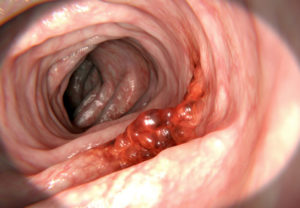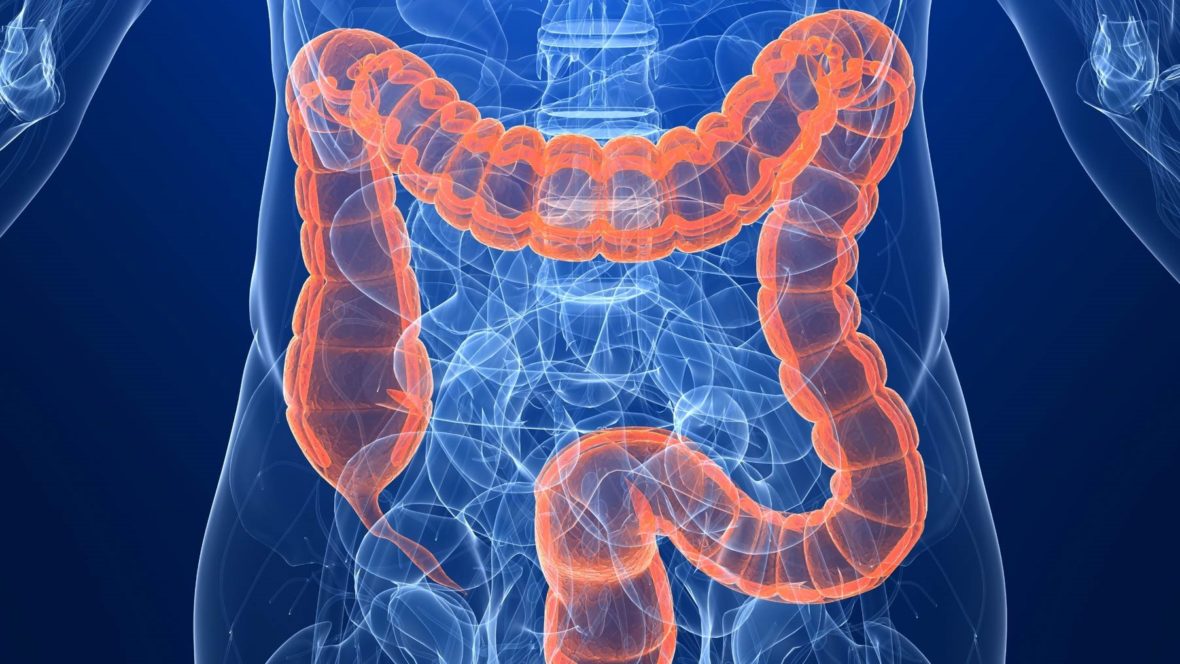Colon cancer, or colorectal cancer, affects millions of men and women worldwide, which makes it an important disease to understand and to prevent. It’s the third most common cancer diagnosed in both men and women in the United States, and even though the death rate for the disease has been dropping for the past 30 years, it’s still the second leading cause of cancer death in the United States. Take a look below for 25 more important scary facts about colon cancer.
1. The overall lifetime risk of developing colon cancer if 1 in 21 for men and 1 in 23 for women.
2. There are currently more than 1 million colorectal cancer survivors in the United States.
3. In many cases, screening for colon cancer can prevent it by removing any polyps before they turn into cancer. Screening for colon cancer at an early stage could prevent a third of colon cancer related deaths in the United States.
4. 90% of colon cancer cases appear in men and women who are 50 years old or older. This means that the risk of developing colon cancer increases with age.
5. Like lung cancer and cervical cancer, colon cancer can be very difficult to detect in its early stage. Symptoms can include a change in bowel habits, blood in the stool, diarrhea, constipation or frequent gas pains.

6. Obesity not only increases the risk of having colon cancer by 30%, but it also increases the likelihood of bad treatment outcomes and complications.
7. Smoking also increases the risk of developing and dying from colon cancer, although it’s not as big of a factor as in lung cancer.
8. A recent study found that patients who smoke were 14% more likely to die from their colon cancer within 5 years than patients who had never smoked.
9. People with a first degree relative who has or has had colon cancer have 2 to 3 times the risk of developing the disease. A personal or family history of polyps also puts the person at a higher risk.
10. Since polyps tend to be seen most often in people that are 50 years old or older, doctors recommend universal screening for colon cancer starting at that age.
11. Screening tests for colon cancer can include colonoscopy, sigmoidoscopy, barium enema, CT colonography or virtual colonoscopy, and at home tests like the fecal occult blood test, fecal immune testing or stool gene testing.
12. One third of people recommended for colon cancer screening have never been screened.
13. Research shows that a high fiber diet reduces the risk of colon inflammation and cancer.
14. The removal of precancerous polyps by colonoscopy may reduce a person’s chance of getting colon cancer by up to 70%.

15. Recent studies have found that colon cancer incidence is rising in younger adults who are between 20 and 34 years old.
16. 40% of colon cancer patients are diagnosed at an early stage, when the cancer is the most treatable.
17. Colon cancer is the most preventable, but the least prevented cancer.
18. 85% of colon cancers could be prevented if everyone who was eligible for screening got screened.
19. High Vitamin D levels contribute to colon cancer survivability.
20. People who have diabetes and insulin resistance may have an increased risk of colon cancer.
21. 23 million people have not been screened for colon cancer.

22. In March 2014, the American Cancer Society released data that showed colon cancer incidence rates dropping 30% in the United States in the last 10 years among adults aged 50 and older due to the widespread uptake of colonoscopy, with the largest decrease occurring in those who are 65 years old or older.
23. In January 2013, the American Cancer Society reported a 30% decrease in the mortality rate for colon cancer.
24. The CDC created the Colorectal Cancer Control Program and provided the necessary funds to establish colon cancer programs in 25 states and 4 tribes across the United States.
25. The Screen for Life: National Colorectal Cancer Action Campaign launched in 1999 to encourage men and women who are 50 years old or older to be screened regularly for colorectal cancer.




